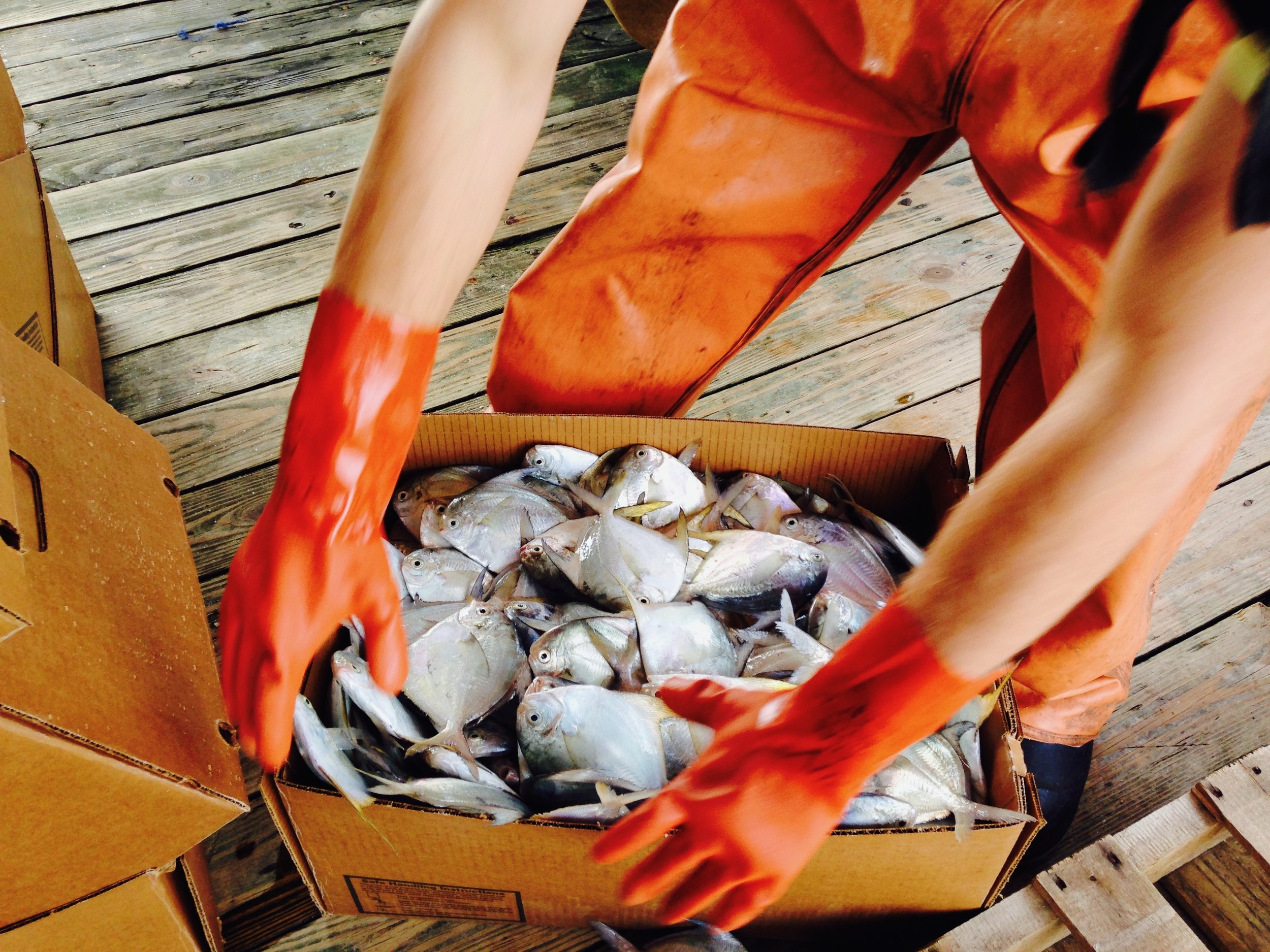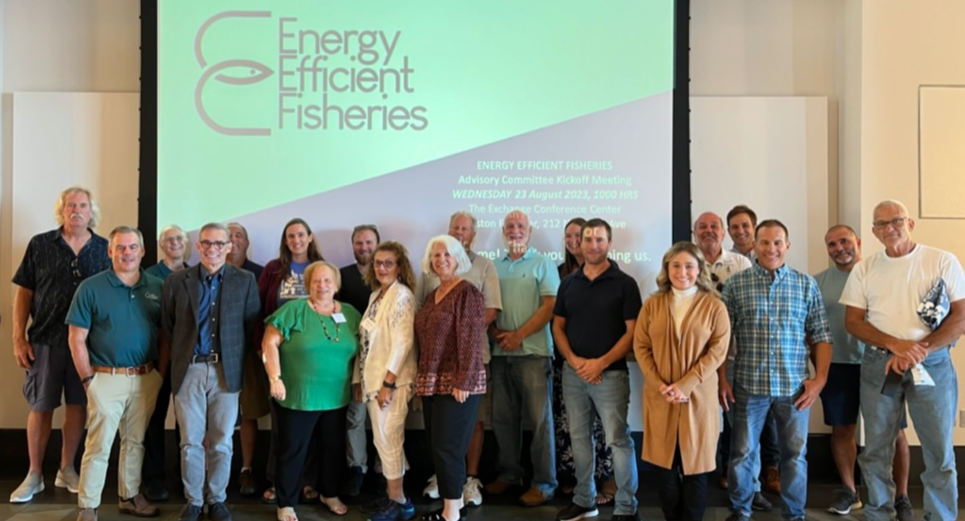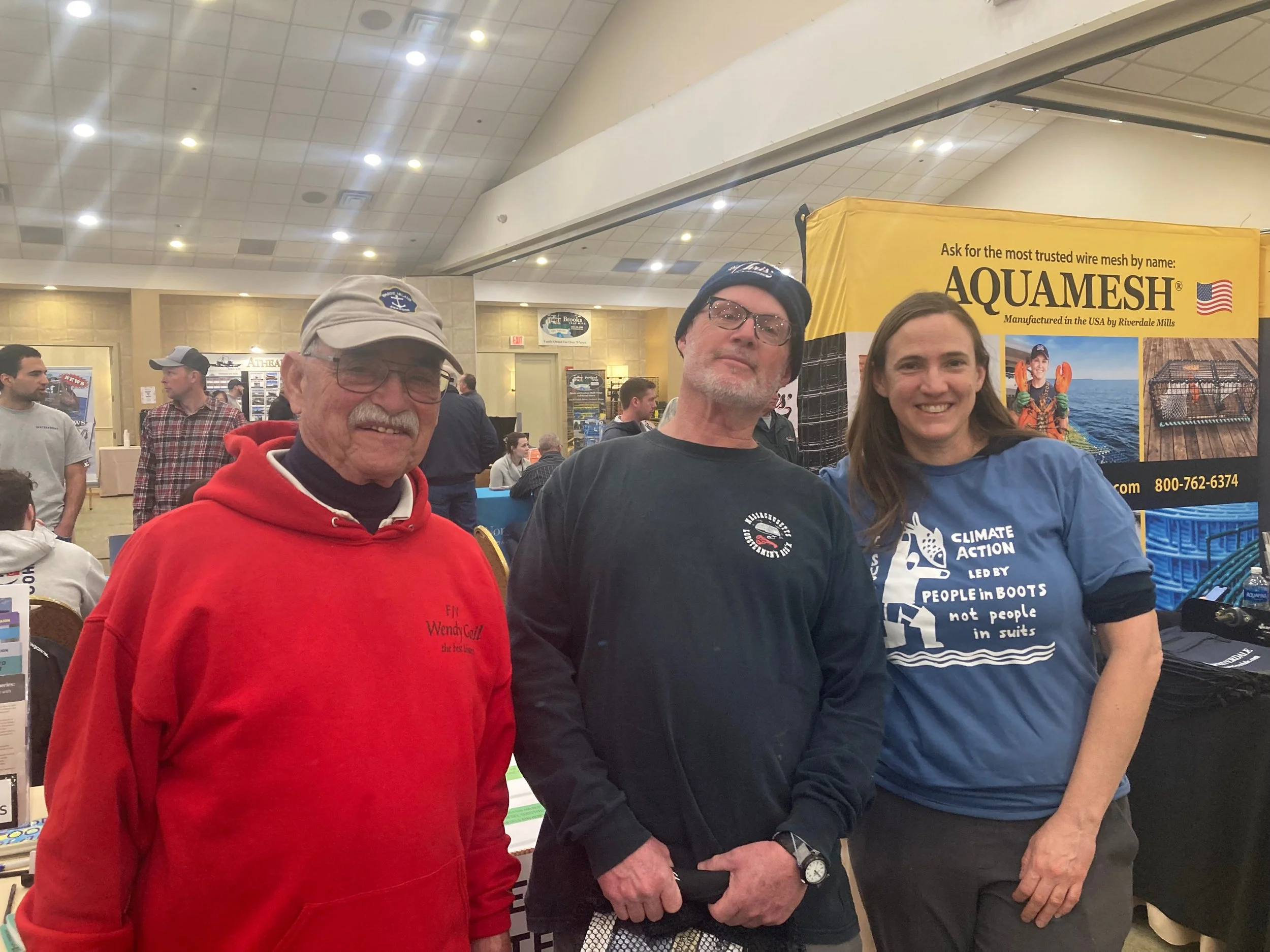
How We Work
Cultivating peer leadership and bottom-up momentum
Core Strategies
The Fishery Friendly Climate Action Campaign works across the U.S. fishing community to unlock a groundswell of fishermen-driven climate leadership and foster momentum towards fishery friendly climate solutions.
Catalyze collaborations and conversations within the fishing community that build capacity, achieve alignment, and mobilize action.
Convene participatory processes that channel the aspirations and knowledge of our diverse community into meaningful collective impact.
Connect fishermen with allied constituencies and external experts who can help us build power through relationships and knowledge.
Communicate the urgency of “fishery friendly” climate action that boldly addresses the root causes of climate change, promotes stewardship of fishery ecosystems, and boosts community resilience.
Climate action is most durable and effective when led by those most affected.
The Fishery Friendly Climate Action Campaign magnifies the impact of local projects at larger scales and helps grassroots trailblazers elevate their leadership, by offering the following social movement support services:
Community List-Serve
The Fishery Friendly Climate Action Campaign’s Community List-Serve is an interactive space for members of the commercial fishing industry to share information and identify opportunities for collective impact related to advancing fishery friendly climate action.
Members of the list-serve are encouraged to use it as a sounding board for new ideas, a one-stop shop for recruiting collaborators, a bulletin board for your events, and a forum for circulating calls to action.
-
Use of the community list-serve is available to working members of the U.S. commercial fishing community or staff of membership-based fishermen’s organizations that are fully accountable to those they serve. Additional details can be found here.
Peer Mentoring
Emerging climate leaders in the fishing community are invited to seek coaching and mentoring from our Campaign Director or from experienced fisheries leaders within our network.
Through individual or group learning sessions, mentees benefit from regular dialogue with thought partners from their peer group who are experienced or curious about climate problem-solving and community organizing.
-
Coaching and mentoring are available, as time permits, to individuals who:
Wish to contribute to the advancement of fishery friendly climate action (as defined here).
Are working members of the U.S. commercial fishing community or staff of membership-based fishermen’s organizations that are fully accountable to those they serve.
Partnership Projects
In our partnership project model, the Campaign director embeds with a partner organization for a defined period of time to offer direct support to the organization and its members – e.g., with project conceptualization, fundraising, community engagement, relationship-building with policy makers, scientific and technical bridge-building, and more.
Partner organizations benefit from the expertise that the Campaign director has accumulated through Campaign activities, while all Campaign participants benefit from lessons learned through the project.
-
To become a partnership project, a project must:
Contribute to the advancement of fishery friendly climate action (as defined here).
Be led by working members of the U.S. commercial fishing community or by the staff of membership-based fishermen’s organizations that are fully accountable to those they serve.
Agree to share lessons from project activities with fishermen across the U.S. through our Community List-Serve, webinars, or other opportunities.
Be approved by the Campaign’s Governing Council and Campaign Director.
Agree to a customized partnership MOA, which spells out respective roles and responsibilities of the collaboration.
Linked Initiatives
Locally led climate action projects can achieve impact at broader geographic scales, tap into a bicoastal pool of knowledge and connections, and help inspire others in their climate journey by “linking up” with the Fishery Friendly Climate Action Campaign. By promoting linked initiatives on our website and social media channels, the Campaign raises the profile of autonomous climate projects led by diverse members of the fishing community around the coasts.
-
To become a linked initiative, a project must:
Contribute to the advancement of fishery friendly climate action (as defined here).
Be led by working members of the U.S. commercial fishing community or by the staff of membership-based fishermen’s organizations that are fully accountable to those they serve.
Agree to share lessons from project activities with fishermen across the U.S. through our Community List-Serve, webinars, or other opportunities.
Be approved by the Campaign’s Governing Council and Campaign Director.
Agree to the details of the linkage via a linked initiative MOU.
Fiscal Hosting
For grassroots projects without a mechanism to receive tax-deductible grants and donations, or for multi-partner collaborations seeking a neutral third party to manage tax-deductible funds, the Fishery Friendly Climate Action Campaign may be able to provide fiscal hosting through the Fishery Friendly Climate Action Fund, our 501(c)3 affiliate. The Fund is a fiscally sponsored project of Sponsor, Inc.
-
To become a hosted project, a project must:Contribute to the advancement of fishery friendly climate action (as defined here).
Be led by working members of the U.S. commercial fishing community or by the staff of membership-based fishermen’s organizations that are fully accountable to those they serve.
Agree to share lessons from project activities with fishermen across the U.S. through our Community List-Serve, webinars, or other opportunities.
Be approved by the Campaign’s Governing Council and Campaign Director.
Agree to a customized MOA which spells out duties and responsibilities of all parties associated with the fiscal sponsorship arrangement.
Got Another Idea?
The Campaign is structured to provide flexible support to emerging climate leaders and initiatives within the commercial fishing community. If you have a need or idea not represented here, contact our director and we will do our best to help!
Governance
The Fishery Friendly Climate Action Campaign is led through a partnership between a Campaign Director and a Governance Council made up of members of the fishing industry and staff of membership-based fishermen’s associations.
-
Provide backbone support to the Fishery Friendly Climate Action Campaign, by maintaining the Campaign website and Community List-Serve and representing the Campaign at public events and port visits;
Partner with other entities from time to time to jointly carry out projects that contribute to the advancement of fishery friendly climate action by members of the U.S. fishing community;
Oversee the management of Fishery Friendly Climate Action L3C (a low-profit limited liability company established to enter into partnership projects with fishermen-led non-profits) and the Fishery Friendly Climate Action Fund (for receiving tax-deductible donations and grants directly); and
Appoint and regularly consult with the Governance Council to ensure that the Campaign and its activities provide value to the U.S. commercial fishing community.
-
Ensure that the Campaign makes equal opportunities for engagement available to all members of the fishing community within its service area, that it remains grounded in their needs, and that it respects their diversity;
Make sure that the Campaign avoids undermining any independently initiated fishermen-led climate action activities, but instead offers these activities a platform for broader amplification through its Community List-Serve and linked initiative opportunities.
Approve the admission of new members to the Campaign’s Community List-Serve, provide advice on the handling of any disputes or controversial behavior that may arise in the List-Serve, and provide advice on how the Community List-Serve can be improved to best suit its purpose;
Ensure that new partnership projects and linked initiatives affiliating with the Campaign are in line with the Campaign’s mission of supporting fishery friendly climate action and are accountable to the fishing community;
Approve the new initiatives taking place through the Campaign and ensure that these initiatives remain accountable to the fishing community; and
Ensure that policy statements circulated through the List-Serve and posted on the Campaign website are in line with the Campaign’s mission of supporting fishery friendly climate action.
-
Initiatives and projects taking place through the Campaign may involve various different kinds of teams :
Leadership teams: responsible for outlining the direction of a new initiative, setting it on its course, recruiting participants, and ensuring it sticks to its purpose. Leadership teams may seek funds, manage budgets, and hire contractors to serve the initiative.
Working groups: temporary groups assembled for a specific task within an initiative, such as writing a publication or a letter.
Think tanks: groups convened by an initiative to engage in collaborative learning and become thought leaders on behalf of the fishing community on a new topic.
In the Campaign’s early days, most initiatives and projects have been led by the Campaign director but as the Campaign matures, we hope to see a greater number of initiatives led by other fisheries leaders utilizing the Campaign’s supporting infrastructure.
Accountability
We’ve worked hard to build accountability to the fishing community into the Campaign’s structure and operations. All participants in Campaign activities are encouraged to hold us to these commitments, and to speak your mind if you ever feel we’re wavering. The Fishery Friendly Climate Action Campaign adheres to the Jemez Principles of Democratic Organizing and we expect our partners and allies from outside the fishing community to adhere to the Rules of Conduct for Working with Small-Scale Fisheries and Fishworkers to Save Our Ocean.
-
The Campaign never speaks as a whole for its participants or takes positions as a unit; instead, it cultivates the capacity of its participants to coalesce around positions and speak for themselves.
When engaging in any projects at the local or state level, the Campaign works in tandem with membership-based fishermen’s associations that are based in those locations, who can tell us if we’re veering off track.
All core initiatives taking place through the Campaign are guided by project-specific leadership teams made of commercial fishing industry participants.
The Campaign has no paid staff, making it immune to the pressures of financial self-perpetuation. All work is carried out by volunteers and contractors.
Any funding that is not contributed directly by members of the fishing community is subject to critical review by the Governing Council and any project-specific leadership teams using these funds to advance their purposes.
A Decentralized Funding Model
As the saying goes, money is power. To build power across the fishing community, much of the money that supports activities taking place through the Fishery Friendly Climate Action Campaign is held in trust by partners at diverse membership-based fishermen’s associations across the coasts. Some funds are also managed through two small entities that support the Campaign as a whole: Fishery Friendly Climate Action L3C (the Campaign’s backbone entity) and the Fishery Friendly Climate Action Fund (a fiscally sponsored, tax-deductible fund to support fishermen-led climate action).
This decentralized funding structure weaves criss-crossing networks of commitment and interdependence across the U.S. fishing community, helping us build power together.








